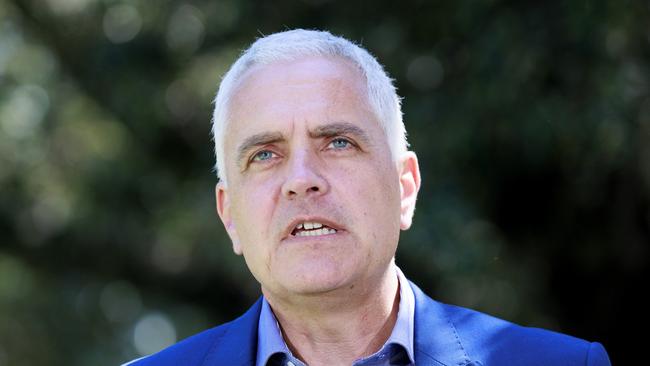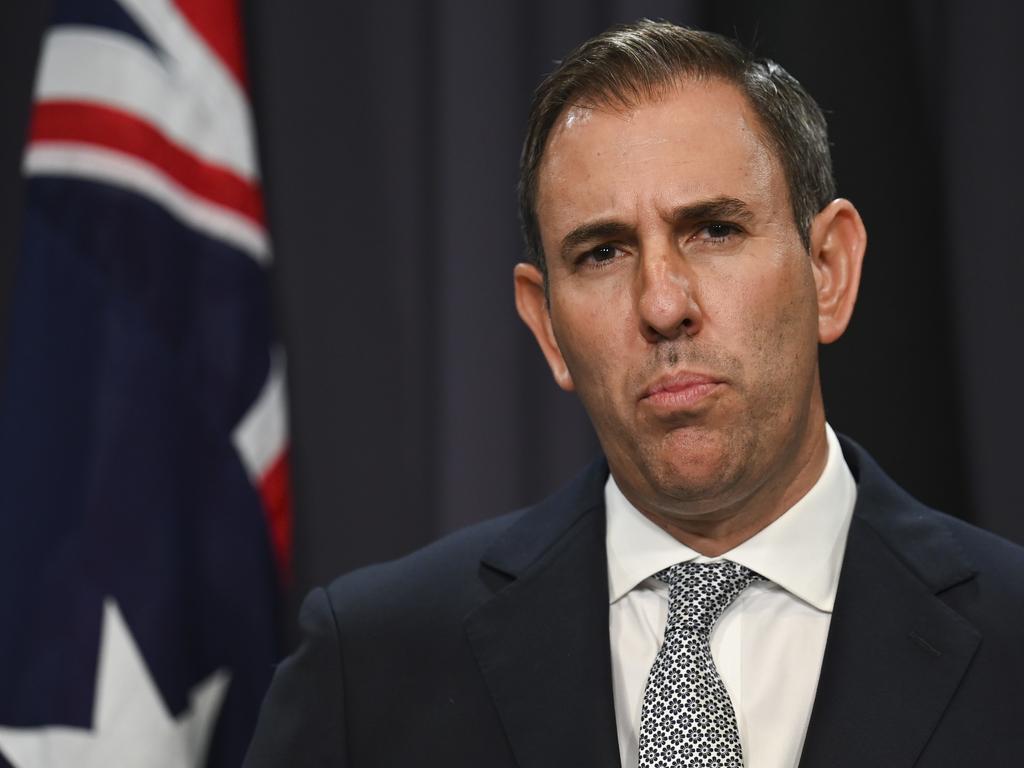Unions flex muscles on gig rights under new ALP rules
One of the nation’s most powerful unions will seek leave and superannuation rights for gig workers and a multi-employer bargaining agreement with aviation ground bosses.

One of the nation’s most powerful unions will seek leave and superannuation rights for gig workers and a multi-employer bargaining agreement with aviation ground bosses, as emboldened unions capitalise on Labor’s new workplace laws.
The Transport Workers Union push comes as The Australian can reveal new pay deals containing generous rights for federal public sector workers to work from home are set to be voted up in some of the biggest government departments next week, extending the new flexibility clauses to 85,000 government employees.
The expected endorsement of deals by employees in the Australian Taxation Office, Services Australia and the Department of Home Affairs mean more than half of the 170,000-strong public sector workforce will gain the new rights that include no formal cap on the number of working from home days each week and a “bias towards approving requests.
In a major speech on Friday, TWU national secretary Michael Kaine said the union would “reignite our charters” with Uber, DoorDash and Menulog over coming months to establish new minimum standards on pay and job security for gig workers – before kicking off negotiations for additional rights for gig workers, including leave entitlements and superannuation.
Accusing Qantas under previous chief executive Alan Joyce of taking a “Pol Pot year zero approach to industrial relations”, Mr Kaine said the new multi-employer bargaining laws were a “golden opportunity” for both workers and employers to lift standards across aviation.
With Qantas opposed to multi-employer bargaining, he said the union was holding talks with smaller companies who take on outsourced Qantas work about pursuing a multi-employer agreement.
Declaring that “every few decades, it falls to the Left to save capitalism from its own excesses”, Mr Kaine said the” real barbarians are not people like me or (Workplace Relations Minister) Tony Burke, (ACTU secretary) Sally McManus or Anthony Albanese, they’re people like Alan Joyce who have sought to systematically dismantle the institutions and regulations that protect and promote social harmony”.
“Rebuilding Qantas from rock bottom is a gargantuan task,” Mr Kaine said.
“This is why the reforms sweeping through Canberra are not an ideological incursion into the domain of free markets but a necessary correction.
“The goal is not to stifle innovation or entrepreneurship far from it. The aim is really to protect the market from itself.”
Describing a recent wave of change across airports, he said Menzies and Dnata, which picked up much of the outsourced Qantas ground-handling work, brought in job-security commitments including: insourcing at Menzies; more hours for part-timers; and pay increases as high as 17 per cent over four years at Dnata. Workers at Swissport, which has a hostile relationship with the union, achieved a 10 per cent pay increase in the first year of their agreement.
Mr Kaine said multi-employer bargaining presented an opportunity to lift standards holistically across the airports and return good quality jobs and services to aviation.
“Although the likes of Alan Joyce said the sky would fall in if multi-employer bargaining and ‘same job, same pay’ laws came into effect, the truth is it’s only business models like his that will collapse under these changes,” he said.
“Multi-employer bargaining is a golden opportunity not just for workers, but for employers. For those wanting to do the right thing, but hamstrung by the chop-and-change mentality of Qantas that means no contract is secure.
“Qantas may want to hold all the power; to switch and outsource at their whim; to fragment and separate and divide and conquer.
“But they can’t stop us coming together to bargain for better as a collective.”
Mr Kaine said every sector of road transport would be captured by the new system, including gig transport and the owners of freight at the top of contract chains.
“For the first time, the Fair Work Commission will be able to take a holistic view of complex contract chains, from top to bottom and side to side, and find the right balance,” he said. “It has the ability to tackle the Amazon effect – where economic power is concentrated with wealth at the top, and standards are dragged out from underneath by exploitative gig competition. This system will level the playing field, and that’s why the industry wants it – because the industry will shape it.”
Mr Kaine said elongated payment terms were “as common in transport as the F word”, transferring all the financial risk onto those with the most to lose.
“Thirty-day payments – or perhaps even shorter – is a quick fix that can keep businesses afloat, and one we’ll be working with industry to make on day one of the legislation,” he said.
“When 2023 saw 235 transport-related crashes and 394 transport businesses collapse, there’s not time to lose to make transport fairer, safer and more sustainable.”
Spruiking the government’s workplace agenda on Thursday, Workplace Relations Minister Tony Burke highlighted how the gender pay gap in Australia was at its lowest on record, falling one percentage point to 12 per cent.
Australian Bureau of Statistics data shows the gender pay gap has fallen by 2.1 per cent since the last federal election.
Opposition Leader Peter Dutton said “we have to be careful that the Albanese government just doesn’t side with the unions on every occasion, because all that happens is, if the price of wages go up too dramatically in an inflationary environment, you will end up with much higher prices for consumers.”








To join the conversation, please log in. Don't have an account? Register
Join the conversation, you are commenting as Logout